At the beginning of each academic year, we introduce and welcome faculty members and athletic coaches who are joining the Claremont McKenna College community. Read these brief biographies to learn about their accomplishments, research and teaching priorities, fields of expertise, and academic backgrounds.
New Full Professors
Devin Fergus
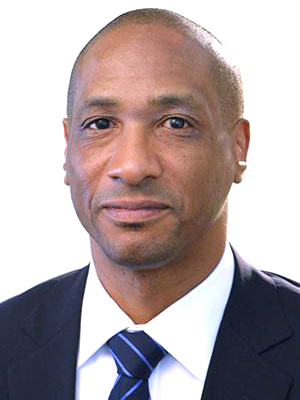
Devin Fergus is joining the History Department as a Professor of History and Public Affairs. His research and teaching focus on political economy, policy, race, and inequality in modern America. His 2018 book, Land of the Fee: Hidden Costs and the Decline of the American Middle Class, exploring the hidden costs of rising financial fees at home, school, work, and transportation on wealth and mobility in modern America, is recognized as one of the five best books for understanding capitalism today. He has published widely in outlets such as The New York Times, The Washington Post, The American Prospect, The Guardian, The Atlanta Journal-Constitution, and Slate. His current research project examines white-collar crime and the racial wealth gap. Fergus earned his Ph.D. from Columbia University.
Diana Williams
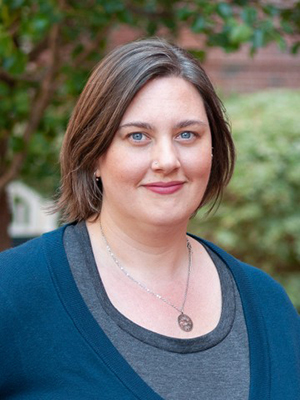
Diana Williams joins the Kravis Department of Integrated Sciences as a Professor of Integrated Sciences: Neuroscience. Her research examines the neural and endocrine control of motivated behaviors, with a focus on eating behavior. Many of her studies explore how the gut communicates with the brain about nutrients coming into the gastrointestinal tract during meals, and how the brain integrates this information with the taste of food, desire and pleasure, environmental cues, and learned habits that can affect eating. Her laboratory employs normal and genetically modified rodent models and various techniques including pharmacology, neuroanatomy and histochemistry, surgical manipulation of the gut and brain, measurement of circulating hormones and fuels, and detailed behavioral analysis. This work helps reveal the biological underpinnings of our everyday eating experiences, and also sheds light on pathological states, including eating disorders like anorexia nervosa, bulimia nervosa, and binge eating disorder.
New Associate Professors
Lynn Mie Itagaki
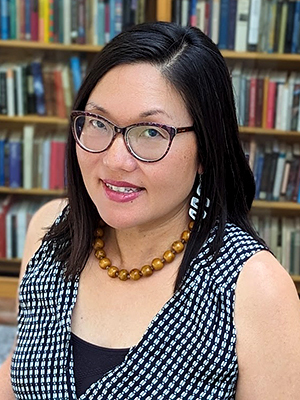
Lynn Mie Itagaki joins the Intercollegiate Department of Asian American Studies as an Associate Professor of Literature and Gender Studies, with a secondary appointment in the Department of History. She is a nationally recognized expert on interracial civility and conflict who has been interviewed by NPR, PBS, Time, Pacifica, and other local and national podcasts and radio shows. Her research focuses on interracial ethics, comparative race studies, women of color feminism, and 20th- and 21st-century U.S. literature by writers of color. She is the author of the 2016 book, Civil Racism: The 1992 Los Angeles Rebellion and the Crisis of Racial Burnout, and her research has been supported by the National Endowment for the Humanities and the National Humanities Center as well as Visiting Professorships at universities in England and Germany. She is completing a book on financial citizenship, Isms for Algorithms: The Race for Finance, The Gender of Money, and her next book project, Ignoring Suffering: Representing the Bystander in the Asian Diaspora, examines how stories of bystanders shape political responses to human rights violations and humanitarian disasters. She has led a multi-year research project on the shifts in European cultural politics in response to recent migration from Asia and Africa. Professor Itagaki welcomes faculty and student collaborations on comparative racialization and intersectional feminisms.
Shaun Lee
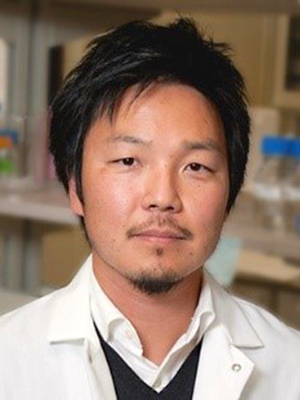
Shaun Lee joins the Kravis Department of Integrated Sciences as an Associate Professor of Integrated Sciences: Molecular Biology and Microbiology. His research involves the study of host-microbe and microbe-microbe interactions that govern human health, wellness, and disease states, especially in aspects of personalized medicine such as host microbiomes. His current work also utilizes biophysical, molecular, and cellular technologies to discover and develop novel bacterial peptides for use as safe anti-infective compounds. His work has been supported by the National Institutes of Health and published in journals such as Nature Microbiology and PNAS.
New Assistant Professors
Zeynep Enkavi
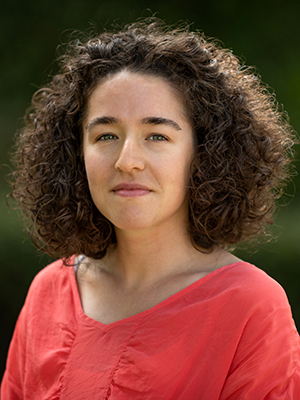
Zeynep Enkavi joins the Kravis Department of Integrated Sciences as an Assistant Professor of Integrated Sciences: Neuroscience. A cognitive neuroscientist, her research seeks to elucidate neurobiological mechanisms underlying human decision-making, with a particular emphasis on decisions that involve self-control. To this end, she uses behavioral assays, eye tracking, and functional neuroimaging methods. She relates these observable data to unobservable cognitive processes using computational models. Additionally, she embraces open science practices and has created or contributed to several scientific research software packages. Her ongoing work investigates the differences in learned value representations in humans compared to non-human primates. In another line of work, she plans to compare differences in brain networks leading up to and following correct and incorrect choices. She earned her B.A. from the University of Pennsylvania and her Ph.D. from Stanford University.
Emily Ho
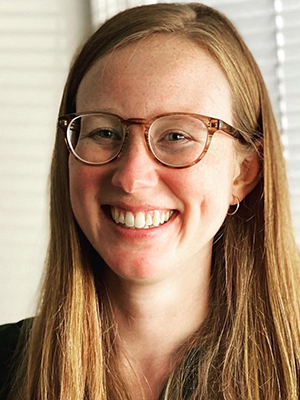
Emily Ho joins the Kravis Department of Integrated Sciences in July 2025 as an Assistant Professor of Integrated Sciences: Developmental Biology. Her research investigates how cells in the early embryo communicate with each other to coordinate the complex task of building a body. Using a toolbox of light-activated proteins (optogenetics), novel fluorescent biosensors, and genome editing, she explores how cells make quantitative measurements about the signals they receive and then use those measurements to make decisions about their fate. She is also interested in how these decisions go wrong in developmental diseases and in cancers. She earned a B.A. from Carleton College and a Ph.D. from Stanford University. She performed her postdoctoral fellowship work at Princeton University.
Peter Kelly
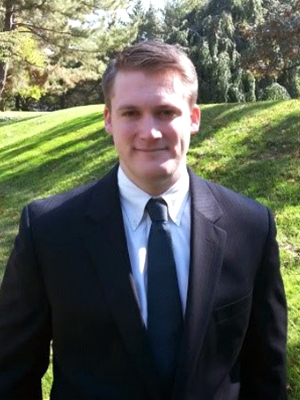
Peter Kelly joins the Robert Day School of Economics and Finance as an Assistant Professor of Economics (Finance). His research focuses on behavioral finance and financial accounting, with active research projects exploring how people form expectations and interpret information. His research is published in the Review of Financial Studies, Review of Accounting Studies, and the Review of Finance. Additionally, his work has attracted attention from major media outlets including Bloomberg and U.S. News and World Report. Kelly earned a B.S. in Honors Mathematics and Economics from the University of Notre Dame and Ph.D. in Financial Economics from Yale University.
Colin Rathbun
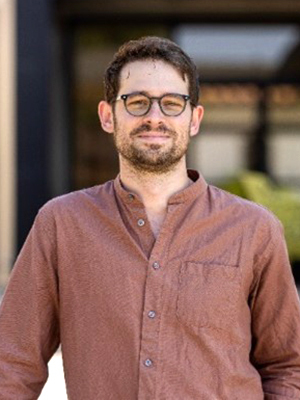
Colin Rathbun joins the Kravis Department of Integrated Sciences as an Assistant Professor of Integrated Sciences: Chemistry. His research seeks to develop new ways to image multicellular interactions in live organisms that drive processes such as the efficacy of cancer-killing drugs, the progression of infection, and the success of stem cell treatments. The ability to see and study these interactions is crucial for understanding the causes and potential treatments of illness. Rathbun is developing bioluminescent proteins that illuminate multiple cell types in the bodies of live organisms to study such interactions. Students in the Rathbun Lab will use modern techniques in protein engineering to evolve brighter and more versatile bioluminescent enzymes.
Cesar Vargas Nunez
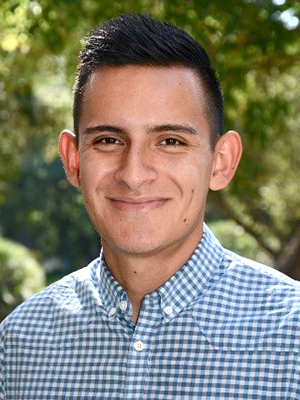
Cesar Vargas Nunez joins the Government Department as an Assistant Professor of Government. His research focuses on the causes and effects of the welfare exclusion of vulnerable communities. Specifically, he focuses on understanding the consequences of healthcare exclusion and the factors that shape public attitudes toward providing welfare to undocumented immigrants. The results of his research agenda contribute to our understanding of partisan attitudes, political ideology, public health, political behavior, and inequality. His research has received support from the Fulbright Spain Commission, the National Academies of Science Engineering and Medicine (Ford Dissertation Fellowship), and the National Institutes of Health (NIH). He earned a B.A. in Political Science from Pitzer College and a Ph.D. in Political Science from Stanford University.
Nia Walker
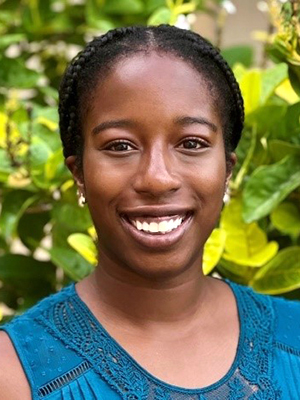
Nia Walker joins the Kravis Department of Integrated Sciences in January 2025 as an Assistant Professor of Integrated Sciences: Biology. Her research is focused on better understanding how organisms function under normal and high-stress environmental conditions. She uses genomics, genetics, ecological, and physiological techniques. A major goal of her research is to illuminate not just the capabilities of the stress response and resilience, but to also discover how integral life processes are impacted by an organism’s urgent need to invest in processes related to stress resilience. Most of her work has focused on reef-building corals, and she has studied reefs around the world, including Hawaiʻi, Palau, and the Caribbean. She earned a B.A. in Organismic and Evolutionary Biology from Harvard College, a Ph.D. in Biology from Stanford University, and completed a postdoctoral fellowship at the University of Hawaiʻi at Mānoa.
Jingyu Xu
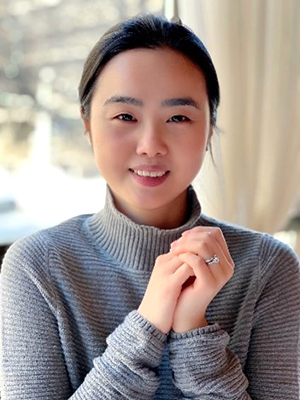
Jingyu Xu joins the Robert Day School of Economics and Finance as an Assistant Professor of Economics (Accounting). She teaches ECON 086, Accounting for Decision Making, and her research interests include mergers and acquisitions, the information environment in capital markets, and human capital in the audit setting. Using empirical methods, she examines questions on the contracting process in mergers and acquisitions, merger-related corporate disclosures, the transfer of accounting-related information in the capital market, and accountant classification in affecting audit outcomes. She earned her Ph.D. from the University of Connecticut.
New Coach
Skania Valencia
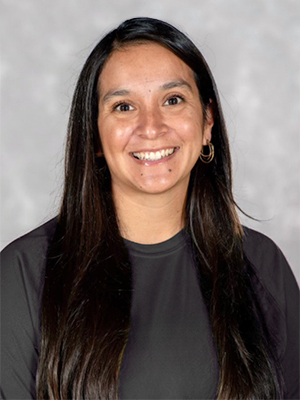
Skania Valencia joins the Physical Education department as an Assistant Professor of Physical Education and Head Softball Coach. Valencia brings six years of college-level coaching experience to the position, divided across Mercy College (Dobbs Ferry, N.Y.); Westfield State University (Westfield, Mass.); and Siena College (Loudonville, N.Y.). Most recently, this past year she assisted in leading the NCAA Division I Siena Saints softball team to their best season in program history, and the team’s first Metro Atlantic Athletic Conference championship. As an undergraduate, Valencia played two seasons for the NCAA Division II Mercy College Mavericks, where she was named First Team All-East Region and First Team All-ECC selection during her junior season, and Second Team All-East Region and Second Team All-ECC honors during her senior season, while recording 59 hits and 48 RBI and setting the program’s single-season record in the latter. Her approach to coaching prioritizes recruitment, retention, graduation, and creating a positive environment. Valencia holds a B.S. in Business Administration, with a focus in Sports Management, and an M.B.A. from Mercy College.
New Full-Time Visiting Faculty
Rebeca Castaneda Leffler
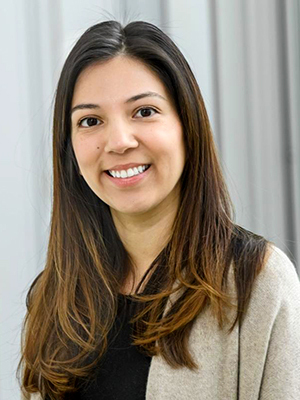
Rebeca Castaneda Leffler joins the Government Department as a Visiting Assistant Professor of Government. Her research and teaching interests include American political thought, literature and politics, rhetoric and poetics, and the American presidency. More specifically, she is interested in how political philosophy and literature have influenced the American political tradition and how American statesmen have used rhetoric in times of crisis. Leffler earned a B.A. in English from California State University, Los Angeles, and a Ph.D. in political science from Claremont Graduate University.
Isidro González
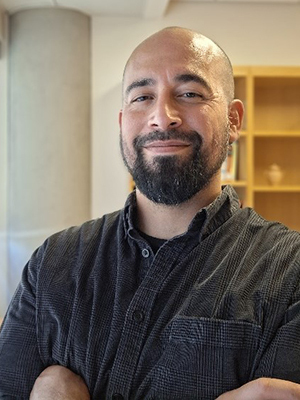
Isidro González joins the History Department as a Pre-Doctoral Fellow of History and Visiting Instructor of History. González’s research explores histories and legacies of eugenic practices, methods, and data in the 20th-century U.S. Southwest. Specifically, he looks at the roles of social workers, science, and the state in race-making through disability, disabled subjects, and disability experts at sites of confinement and exclusion, such as institutions for people deemed “feebleminded” and the Mexico-U.S. border. One of his current projects delves into the history of behavioral interventions and how racialized subjects experienced them in the post-World War II era. In support of his dissertation, he received the Andrew Vincent White and Florence Wales White Scholarship in the Medical Humanities from the University of California Humanities Research Institute (UCHRI) for a project that showed how intimate dialogue between observer and observed demonstrated ways in which bedside manner, cultural insensitivity, and an ideology that some bodyminds are worth more than others led to long lives of confinement, surveillance, and sexual sterilization for patients/inmates or, for eugenic professionals, to successful, generative, and long careers in the sciences. González’s work has appeared in Southern California Quarterly and Sage Research Methods: Diversifying and Decolonizing Research.
Phuthego Phuthego “Ptwo” Molosiwa

Phuthego Phuthego “Ptwo” Molosiwa joins the History Department as a Visiting Assistant Professor of History. Molosiwa holds a Ph.D. in African History from the University of Minnesota, Twin Cities. He is a scholar of Botswana’s history and of modern southern Africa with research interests standing at the interface of environmental history, medical history, gender and the construction of masculinities, race and ethnicity, as well as citizenship and national identity. He is also a team player with multiple collaborations with scholars from within and outside the field of African history. Through documentary analysis and oral interviews, his creative work explores the history of Botswana and southern Africa as public spaces and creates narratives in which power, past and present, overlap and intersect. Taken as a whole, Molosiwa’s scholarship constitutes a single intellectual enterprise that explores the contours of power relations. It is primarily about the multiple ways in which power is constructed, deployed and contested through the prism of the everyday.
Ruijun Zhao
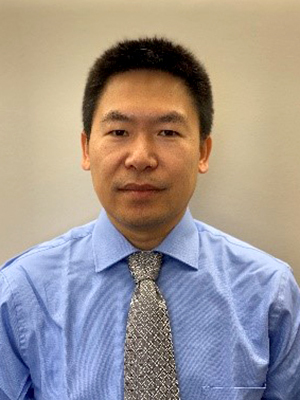
Ruijun Zhao joins the Mathematical Sciences Department as a Visiting Professor of Mathematics. Dr. Zhao is a professor and chair of the Department of Mathematics and Statistics at Minnesota State University, Mankato. Zhao’s areas of expertise include mathematical biology, scientific computing, and applied mathematics. His current research interest focuses on the mathematical modeling of vector-borne diseases. He earned his B.S. and M.S. from Nankai University, in Tianjin, China, and his Ph.D. from Purdue University. Dr. Zhao enjoys meeting with students to share his learning and life experiences.
New Part-Time Visiting Faculty
Maya Binyam

Maya Binyam joins the Literature Department as a Visiting Lecturer of Literature. Binyam is the author of the novel, Hangman, which was named a 2024 National Book Foundation “5 under 35” honoree, received the Rosenthal Family Foundation Award from the American Academy of Arts and Letters, and was longlisted for the Women’s Prize and the Mark Twain American Voice in Literature Award. Her work has appeared in The Paris Review, The New Yorker, New York, Best American Short Stories, and elsewhere. She is an advisory editor at The Paris Review. Previously, Binyam worked as an editor at Triple Canopy and The New Inquiry, and as a lecturer in The New School’s Creative Publishing and Critical Journalism program. Her work has been supported by Blue Mountain Center, Art Omi, and Headlands Center for the Arts, where she received the McLaughlin Children’s Trust Award. She earned her B.A. from Yale University.
Ryan Patel

Ryan Patel joined the Robert Day School of Economics and Finance as a Visiting William F. Podlich Distinguished Fellow in spring 2024. Patel is a globally recognized futurist and go-to authority on global business, political economy, and corporate governance. An expert in scaling businesses, he has served both startups and publicly traded firms. He is a sought-after TV news commentator, board director, and keynote speaker. Patel also hosts the Webby Award-nominated series, “The Moment with Ryan Patel." In 2015, he was awarded “Executive of the Year” by the Los Angeles Business Journal. Patel is also the 2020 recipient of the prestigious North American Association of Asian Professionals (NAAAP) 100 award and the U.S. Senate Certificate of Commendation, acknowledging his outstanding business leadership. Recognized as a LinkedIn “Creator to Follow” and as a “Top Voice,” Patel extends his literary talents to impactful domestic and international keynote addresses, spearheading campaigns with corporate and academic giants, from the World Economic Forum to The Economist. He earned his bachelor’s from the University of California, Berkeley, and his MBA from the Paul Merage School of Business at the University of California, Irvine. He also received his Corporate Governance and Board of Directors Certification from the UCLA Anderson School of Management Executive Program.
Piyush Prakash
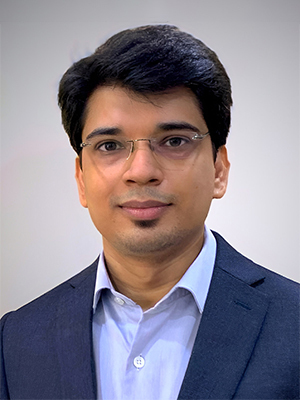
Piyush Prakash joins the Leadership Studies Program as a Visiting Lecturer of Leadership. He is a senior public policy professional and researcher with over a decade of experience working with city, state, and federal governments in India and the U.S. His research focuses on enhancing efficiency in public systems. As a Senior Research Officer with the Government of India’s apex public policy think tank, he contributed to the formulation and implementation of India’s National Education Policy of 2020. At different levels of government in India, he has designed programs that successfully leverage technology, behavioral science, and gamification to improve the performance of frontline public officials and educational administrators. An engineer by training, he holds a Master’s in Education from the Tata Institute of Social Sciences and a second Master’s in Public Policy from the University of Chicago.
Ramkishen Rajan

Ramkishen Rajan joins the Robert Day School of Economics and Finance as a Visiting William F. Podlich Distinguished Fellow. He is the Yong Pung How Professor at the Lee Kuan Yew School of Public Policy at the National University of Singapore, where he also co-chairs the Master in Public Policy program. Since 2003, he has been affiliated with Claremont Graduate University as a Senior Research Fellow. He previously held positions with ESSEC Business School (Asia-Pacific), George Mason University, and the University of Adelaide, Australia. Rajan earned an M.A. from the University of Michigan, and both an M.A. and Ph.D. from Claremont Graduate University. He specializes in international finance with particular reference to emerging Asia. He has published numerous books, journal articles and book chapters; policy briefs; op-eds; and book reviews on various aspects of international economic policy.

